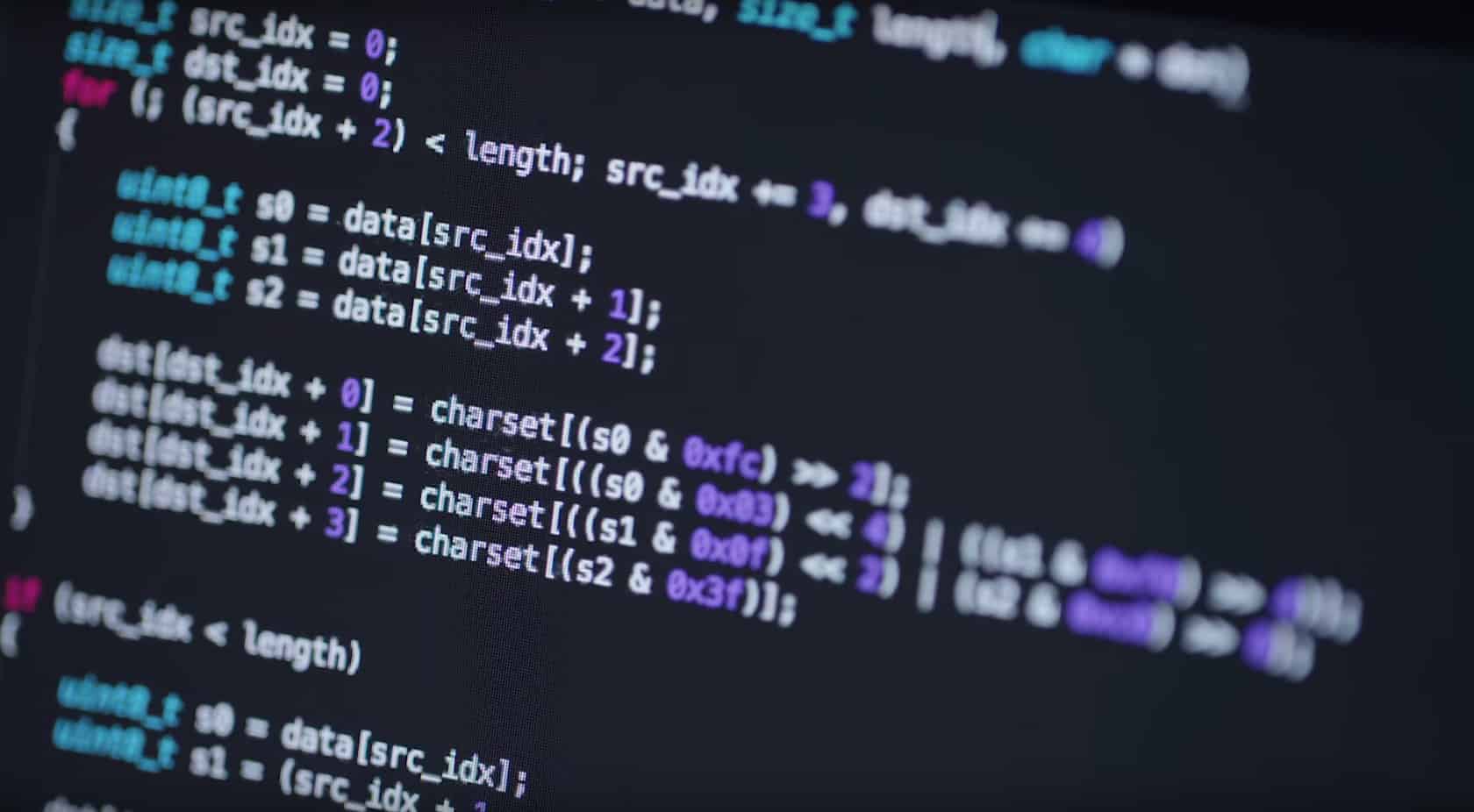Finding Your Way Through the Learning Journey
When I first start talking to people about learning programming, I see same thing every time - bright eyes full of hope and excitement. They tell me about all the dreams they got, about websites they want to build, about apps that will change everything. But then, maybe three weeks later, four weeks, I see them again and something is different. The excitement, it's not so bright anymore. They tell me it's too hard, too confusing, maybe this isn't for them after all.
I been teaching and helping people with programming courses here in Vancouver for more years than I like to count sometimes. And you know what I learn? The problem isn't that people can't do it. The problem is nobody tell them the truth at beginning - learning to code is like learning to speak new language, except this language doesn't follow rules you expect, and the computer, well, it doesn't forgive mistakes like person does.
But here's the good news I want to share with you today. Staying motivated through programming course isn't about being genius or having special talent. It's about understanding what you're really going through and having right strategies to keep going when things get tough. And trust me, things will get tough. That's not being negative - that's being honest so you can prepare.
In Canada, we got wonderful resources for learning programming. From coast to coast, people are taking online courses, going to bootcamps, teaching themselves from home. The opportunities are here. What many people missing is the roadmap for keeping their motivation alive during the journey. That's what we're going to talk about today - real, practical ways to stay on track, even when your code won't work and you feel like giving up.
Understanding Why Motivation Disappears
Before we talk about solutions, let's be honest about the problem. I remember this young woman from Toronto who call me last winter. She was crying - actually crying - because she spend six hours trying to fix one error in her code. Six hours! And you know what the problem was? She forgot to put one little semicolon at the end of line. One tiny mistake, six hours of frustration.
This is reality of learning programming. The computer doesn't understand "almost right" or "I meant to do that." It only understand exactly right. And when you're new, you don't even know what exactly right looks like yet. This create something I call the "frustration valley" - that period where you know enough to try things but not enough to fix them when they break.
The Expectation Gap
Most people start programming course thinking they'll be building amazing things in few weeks. They see these advertisements showing happy people coding on laptops in coffee shops, creating beautiful websites while sipping lattes. Nobody show you the reality - the countless error messages, the documentation that might as well be written in ancient Greek, the feeling of being completely lost even though you following instructions exactly.
I tell everyone who ask me: expect to feel confused at least 60% of the time. That's normal. That's not sign you're failing - that's sign you're learning. The problem come when people think confusion mean they're not good enough, so they give up. Understanding this expectation gap is first step to staying motivated.
The Comparison Trap
Oh, this one is big problem, especially now with social media everywhere. You go online and see people posting about their projects, their success, how they learned everything so fast. What you don't see is their struggles, their failures, all the time they spend fixing mistakes. You're comparing your beginning to someone else's middle or end, and that's not fair to yourself.
Here in Canada, we got such diverse community of learners. People from all backgrounds, all ages, all experience levels. Some person might pick up concepts faster because they have background in math or logic. Some person might struggle more because English isn't their first language and all the programming resources are in English. Everybody got their own pace, their own challenges. Your journey is yours alone - don't waste energy comparing it to others.
Building Strong Foundation for Motivation
Now let's talk about what actually works. I'm not going to give you fancy theories or complicated psychology. I'm going to share what I seen work for real people, in real situations, learning real programming skills.
Set Goals That Make Sense
Forget about saying "I want to be programmer" or "I want to learn Python." These goals are too big, too vague. You need goals you can actually measure and achieve in reasonable time. Instead, try something like "This week, I will complete three lessons about variables and write five practice programs using what I learned."
I like to think of it like cooking. You don't say "I want to be chef" and then expect to make perfect five-course meal tomorrow. You start with learning how to boil water properly, how to cut vegetables, how to follow simple recipe. Same with programming - you build up skills one small piece at time.
Write down your goals where you can see them every day. I keep mine on sticky note on my computer monitor. When I feel frustrated or tired, I look at that note and remember what I'm working toward this week. Not next year, not next month - just this week. That's manageable. That keeps you moving forward.
Create Your Learning Space
This might sound simple, but it matter more than people think. You need space where you can focus, where your brain know "okay, this is learning time." Maybe that's corner of your bedroom, maybe that's library, maybe that's kitchen table after everyone go to bed. The specific place doesn't matter - what matter is consistency.
I work with student in Calgary who tell me he couldn't focus at home because too many distractions - kids, TV, noise. He start going to local library for two hours every evening after dinner. His programming skills improve dramatically, not because library had magic learning powers, but because his brain learn to associate that space with focused work.
Also think about your tools. You don't need expensive computer or fancy setup, but you do need equipment that work reliably. Nothing kill motivation faster than technical problems that have nothing to do with your actual learning. Make sure your computer run smoothly, your internet connection is stable, you got comfortable chair. These things support your learning journey.
Practical Strategies for Daily Motivation
Alright, let's get into the day-to-day stuff. These are strategies you can use starting today, right now, to help keep yourself motivated through the challenging parts of your programming course.
The Two-Hour Rule
Here's something I learned the hard way and now I share with everyone: if you been stuck on same problem for two hours, stop. Just stop. Don't keep banging your head against wall. Take break, go for walk, do something completely different. Your brain need time to process information in background.
I can't tell you how many times I been stuck on problem, given up for day, and then next morning - boom! - the solution just come to me while I'm making breakfast. This isn't magic, it's how brain work. When you step away, your subconscious keep working on problem, making connections you can't force when you're staring at screen getting more and more frustrated.
Of course, this mean you need to plan your learning time wisely. Don't start new difficult lesson at 10 PM when you got to be up at 6 AM. Give yourself enough time to work through problems, take breaks, and come back fresh if needed. Programming isn't sprint - it's marathon with lots of water breaks.
Keep Success Journal
This is one of most powerful tools I know for staying motivated, and it's so simple. Get notebook - doesn't have to be fancy, just regular notebook - and every time you learn something new or solve problem, write it down. Write what the problem was, how you solved it, how you felt when you figured it out.
Why this work? Because when you're deep in frustration valley, feeling like you're not making any progress, you can look back through your journal and see proof that you ARE learning, you ARE growing. You can see that three weeks ago, you didn't understand loops at all, but now you using them without even thinking about it. That's progress, real concrete progress.
Also, this journal become valuable reference. Often in programming, you solve problem, move on, and then few weeks later face similar problem and can't remember solution. Instead of starting from zero, you can look back at your notes and remember how you handled it before. This save time and reduce frustration.
Find Your Community
Programming can feel very lonely, especially if you doing online course by yourself at home. But you don't have to do it alone. Here in Canada, we got wonderful programming communities, both online and in person. Find them. Join them. Participate.
Look for local meetups in your city - most major Canadian cities have programming groups that meet regularly. Can't find one nearby? Online communities work too. Reddit got programming communities, Discord servers exist for almost every programming language, there are forums and discussion boards everywhere. The key is finding group where you feel comfortable asking questions.
And don't just ask questions - answer them too when you can. Teaching someone else is one of best ways to solidify your own understanding. Even if you just learned something yesterday, you can help someone who learning it today. This give you confidence and remind you that you DO know things, you ARE making progress.
Dealing with Specific Challenges
Let me address some specific situations that kill motivation for lot of people. These come up over and over again in conversations I have with students.
When Error Messages Make No Sense
Error messages in programming are like doctor speaking medical terms - they're technically accurate but completely unhelpful if you don't already know what they mean. "Undefined variable on line 47" - okay, but what does that actually MEAN and how do I fix it?
Here's my strategy: when you get error message you don't understand, copy the exact message and search it online. Put it in Google with your programming language name. I promise you, hundreds or thousands of people had same error before you. You'll find explanations, examples, solutions. Programming community is generally very helpful about documenting common problems.
Also, learn to read error messages systematically. They usually tell you three things: what went wrong, where it went wrong (line number), and sometimes why it went wrong. Start by finding the line number they mention, look at that line carefully, and then look at few lines before and after it. Often the actual mistake is close to where error appear, but not exactly on that line.
When Lessons Move Too Fast
Some programming courses go very fast. They introduce new concept, give you one example, and expect you to understand completely. But real learning doesn't work that way for most people. If lesson move too fast for you, slow down. Really, it's okay to take longer than course suggest.
I tell students to use the "three times rule" - go through lesson once to get general idea, second time to understand details, third time to practice and make sure you really got it. Yes, this take three times as long. But would you rather finish course quickly without understanding anything, or take longer and actually learn the material?
Also, supplement your main course with other resources. If your course explain something in way that doesn't click for you, find YouTube video on same topic. Read blog posts. Try different explanations until you find one that make sense to your brain. Everyone learn differently - find what work for you.
When You Feel Too Old or Too Behind
I'm 65 years old and I still learning new programming concepts. Let me tell you something important: it's never too late, and you're never too behind. I've seen people in their 50s, 60s, even 70s learn programming successfully. Age isn't the barrier - attitude is the barrier.
Yes, maybe younger person pick up some things faster. Maybe they got more experience with computers and technology in general. So what? You got something they don't have - life experience, patience, perspective. You know how to work through difficult things because you've done it before in other areas of life. Use those strengths.
And if you feel behind because everyone else in your course seem to understand things faster, remember what I said earlier about comparison trap. You don't know their background, their struggles, their previous experience. Focus on being better than you were yesterday, not better than someone else today.
Managing Time and Energy
One biggest challenge for people learning programming in Canada, especially adults with jobs and families, is finding time and energy for learning. You can't just dedicate eight hours day to studying - you got other responsibilities, other demands on your time.
Quality Over Quantity
Good news: you don't need eight hours day. You don't even need four hours day. What you need is consistent, focused time. I recommend minimum 30 minutes every day - yes, every day - of actual focused learning. Not 30 minutes with TV on in background, not 30 minutes while checking phone every five minutes. Real, focused, dedicated learning time.
Thirty minutes might not sound like much, but it add up. That's 3.5 hours per week, 14 hours per month, 168 hours per year. That's lot of learning! And more importantly, daily practice keep concepts fresh in your mind. If you study for three hours on Saturday and then don't touch programming again until next Saturday, you'll spend first hour just trying to remember what you learned last week.
Think about when your brain work best. Some people are morning people - wake up early, brain is fresh and alert. Other people are night owls - come alive after 9 PM when house is quiet. Schedule your learning time for when your brain is actually ready to learn, not when you're exhausted from long day.
Protect Your Learning Time
This is hard part, especially in family situation. You need to protect your learning time like it's important appointment - because it IS important appointment. Talk to your family, explain what you're doing and why it matter. Ask for their support in giving you uninterrupted time.
Maybe that mean your partner handle bedtime routine with kids three nights per week. Maybe that mean you wake up hour earlier before house get busy. Maybe that mean you use lunch break at work for learning. Find what work for your situation and then defend that time. Don't let it get eaten up by other things that could wait.
I know woman in Halifax who make deal with her teenage children - she give them each one hour of uninterrupted gaming time per week if they give her one hour of uninterrupted learning time per week. Everybody win, everybody support each other. Be creative about finding solutions that work for your family.
Celebrating Progress and Looking Forward
As we come toward end of our conversation here, I want to talk about something really important - celebrating your progress. In programming, it's easy to focus on what you don't know yet, what you can't do yet, how far you have to go. But that path lead to burnout and giving up.
Recognize Your Achievements
Every time you understand new concept, that's achievement. Every time you fix bug on your own, that's achievement. Every time you write program that actually work, that's MAJOR achievement. Don't brush these off as "just small things" or "what I'm supposed to do anyway." They're victories, and you earn right to feel good about them.
Set up reward system for yourself. Maybe when you complete module, you treat yourself to nice coffee or watch episode of show you like. When you finish whole section, maybe you do something bigger - go out for dinner, buy that book you wanted, take day trip somewhere nice. These rewards give you something concrete to work toward and help your brain associate learning with positive feelings.
Share your wins with other people. Post in your programming community about problem you solved. Tell your family about concept you finally understood. Call friend and explain what you learned today. When you share success, it become more real, more meaningful. And other people's congratulations and encouragement help fuel your motivation for next challenge.
Remember Your Why
Finally, on those really hard days when nothing make sense and you want to quit, go back to your why. Why did you start learning programming in first place? Maybe you want better career opportunities. Maybe you want to build something specific. Maybe you just love learning new things and programming intrigue you.
Write down your why and keep it somewhere you can see it. When motivation run low, when frustration run high, read those words again. Remind yourself what you're working toward. This isn't just about getting through course - this is about changing your life, opening new possibilities, proving to yourself that you can do hard things.
Learning programming is journey full of challenges, frustrations, and moments where you want to give up. But it's also journey full of amazing discoveries, breakthrough moments, and incredible sense of accomplishment when things finally click. You absolutely can do this. You just need patience with yourself, good strategies, and commitment to keep showing up even when it's hard.
I believe in you. All of us in Canadian programming community believe in you. Now you just need to believe in yourself. Take it one day at time, one lesson at time, one line of code at time. You got this.




